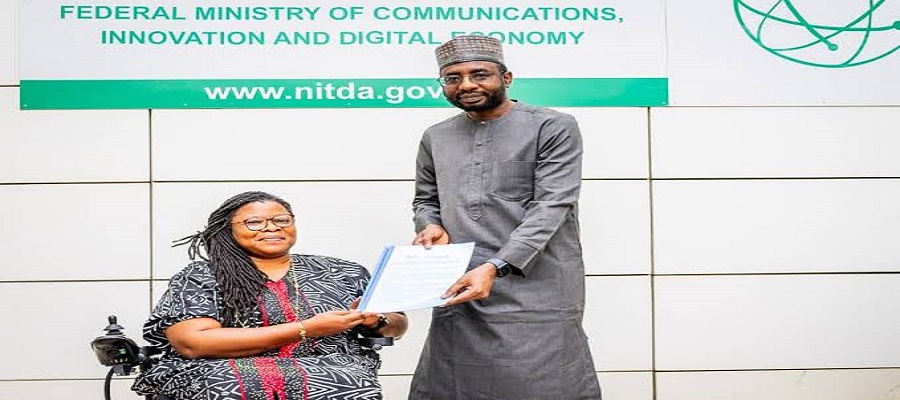General News
Peer-to-Peer Lending as a Means of Propelling Startup Growth

By Adeniyi Ogunfowoke
Capital is the livewire of any business, especially for startups and established small businesses. Hence, they are always seeking for some additional funding that is too small for an angel investor to get a return for their effort. Banks also think it’s not worth their time. That’s where peer-to-peer (P2P) lending is working to fill that lending gap. This model may be a solution for many small businesses that are struggling with just tapping smaller funding amounts.
Peer-to-peer lending involves borrowing money from your peers, including other business people and investors who are interested in relatively small financing amounts. It has been taken a notch higher with fintechs entering the fray. Small business owners and startups can now borrow millions of naira at flexible interest rates.
Why Consider Peer-to-Peer Lending
There are many reasons to consider a P2P loan, but the most compelling is that you do not require a collateral. Also, lower interest rates tend to be available, depending on your loan amount and loan term, because the peer-to-peer lenders operate with low overhead. You can repay the loan early and not have to contend with any prepayment penalties. Since it is an online lending environment, you’ll also enjoy faster approval and no paperwork except for a few online forms and a digital signature.
What To Look Out For
In Nigeria today, there are so many P2P lenders. Entrepreneurs have a potpourri of options to select from. You need to consider what this type of funding requires of you in order to optimise the benefits.
Some of the things that a good P2P lender must have include: easy access to working capital, quick registration, low-interest rate, collateral-free, and flexible repayments plan within 1-6 months. All these aforementioned are what makes Jumia Lending very unique. Jumia Lending is an initiative that gives you the opportunity to grow and expand your business by granting you access to fast and easy short-term working capital.
As an entrepreneur looking to expand the horizon of your business, you can sign up to sell on Jumia and after 6 months of uninterrupted sales on the platform, you will qualify to apply for Jumia Lending. In fact, before you even qualify for the loan, you will experience a significant increase in sales because you are leveraging on the wide reach of Jumia.
Using P2P Lending Strategically
With these benefits and considerations in mind, it’s important to look at using P2P lending in a strategic way.
Determine which P2P lender is best for you. Check reviews and get peer recommendations that relate their experiences with a P2P lender, from application to pay off.
Consider all other lending options that are available to you. Do a comparison to see which lending option offers you the best rate, terms, and amount for what you are looking to accomplish with your funds and the state of your business.
Don’t borrow money just to borrow it (or spend it just to spend it). Create a clear plan and disciplined approach to using the funds that will make the money go the distance. That means looking at the ways you can use the least amount possible through a lean startup strategy.
General News
Wema Bank Workers, Others Arraigned over Alleged N8.9Bn Cybercrime

The trial of three employees of Wema Bank Plc and four others accused of orchestrating N8.9 billion cyber heist has been stalled due to the Eid-el-Kabir public holiday.

Economic and Financial Crimes Commission (EFCC) had arraigned the bank staff—Samuel Asiegbu, Fabian Onyeimachi, and Kingsley Kejim—alongside four alleged accomplices: Hannah Okunlola Adesokan, Hamza Zakariya, Achionu Ubaku, and Sunday Osademe, before Justice Chukwujekwu Aneke of the Federal High Court in Lagos on May 25, 2025.
The seven defendants face an eight-count charge bordering on conspiracy, cybercrime, and obtaining money under false pretences. They were accused of hacking into Wema Bank’s computer systems in January 2025 and unlawfully transferring N8,568,090,500 to various accounts.
According S.O. Larry Peters, counsel, EFCC, the defendants acted in concert with two other suspects—Nurudeen Ibrahim and Alhaji Sulaiman—who are currently at large. The syndicate allegedly manipulated the bank’s data using sophisticated digital tools to cause financial loss and confer illegal economic gains on themselves.
Peters further revealed that two of the defendants—Hannah Okunlola and Sunday Osademe—provided personal bank accounts for the illicit proceeds. Investigators traced N199 million to Okunlola’s UBA account registered under Search Light Media Concept, and N2.25 million to Osademe’s Union Bank account.
The offences, according to the charge sheet, violate Sections 6(2), 8, 14(1), 14(5), and 27(1)(a) of the Cybercrimes (Prohibition, Prevention, etc.) Act, 2015, as well as Sections 17(a)(b) of the EFCC Establishment Act, 2004.
All seven defendants pleaded not guilty. Following their plea, the court remanded five of the accused in the custody of the Nigerian Correctional Services, while Kingsley Kejim continued on existing bail terms.
The court granted a special request by defence counsel to remand Hannah Okunlola in EFCC custody due to medical concerns.
Justice Aneke had adjourned the matter to June 6, 2025, for commencement of trial. However, due to the nationwide Sallah holiday declared by the federal government, the proceedings could not go ahead as scheduled.
A charge reads: “That you, Samuel Ihechukwu Asiegbu, Ejim Kingsley Kelechi, and others now at large, in January 2025, conspired to alter Wema Bank data to cause the loss of N8.568 billion in order to benefit economically, thereby committing an offence under Section 27(1)(a) of the Cybercrimes Act, 2015.”
The case has drawn significant attention as one of the most audacious cybercrime cases involving bank insiders in Nigeria’s recent history.
General News
Music Stars, Comedians Light Up “Evening with Glo” in Ijebu Ode

The 2025 Ojude Oba celebrations kicked off on Friday evening with “Evening with Glo,” a special event organized by Globacom and headlined by Juju music legend Evangelist Ebenezer Obey Fabiyi and Fuji maestro Wasiu Ayinde Marshall (KWAM 1)

This year marks a significant milestone: Globacom’s 20th anniversary as sponsors of the Ojude Oba festival, an event it has helped transform into a globally recognized cultural spectacle.
The “Evening with Glo” was a vibrant mix of live music, delicious food, and captivating comedy from Gbenga Adeyinka, Bash, and Kiekie. The Conference Hall venue was packed as guests enjoyed more than two hours of Ebenezer Obey Fabiyi’s timeless hits, with the audience singing along and dancing.
Globacom organized the event as a gesture of appreciation to the Ijebu community for their unwavering support over the past two decades of the Ojude Oba festival. “We decided to bring together great sons and daughters of Ijebuland to celebrate our shared heritage, and indulge in the melodious rhythms that resonate deeply throughout Yorubaland,” the company stated.
The company explained their choice of musical icons, noting that the “ageless icon and Juju music maestro, Chief Commander Ebenezer Obey, has contributed decades of good, sonorous and philosophical songs to our society. His songs are still as fresh and full of inspirational messages as they were yesterday.”
Regarding KWAM 1, the company highlighted that “For decades, King of Fuji, K1 De Ultimate, the Fuji master, has been a great part of the music firmament in Nigeria, with his unique brand of Fuji that has elicited huge interest.”
The event saw a strong turnout of prominent Ijebu figures, including the Olori of Oba Awujale, Chief Mrs. Olukemi Adetona; the Coordinator of Ojude Oba Festival Planning Committee, Professor Fassy Yusuff; and a committee member and Iyalode of Ijebuland, Chief Mrs. Bisi Osibogun.
General News
NITDA Makes Case for Inclusive Tech for Special Needs

National Information Technology Development Agency (NITDA) has emphasized the importance of developing policies that intentionally include approximately 35 million persons with special needs in digital literacy and technology empowerment initiatives.

Ms. Grace Jerry, executive director, Inclusive Friends Association (IFA) and Malam Kashifu Inuwa, director-general, NITDA.
This was stated by Malam Kashifu Inuwa, director-general, NITDA, in Abuja during a meeting with a delegation from the Inclusive Friends Association (IFA), a disability advocacy organization led by Ms. Grace Jerry, its executive director.
Inuwa noted that integrating persons with special needs into these programmes supports President Bola Tinubu’s agenda of economic reform and inclusive growth.
“This has brought to my attention the need to be more intentional in the way we design our programmes because there is no way we can achieve 95 per cent digital inclusion if we exclude 35 million Nigerians.”
“The agency has always been conducting targeted training for people with special needs in various parts of the country in the past.
“We will ensure that we expand our initiatives to all parts of country and our office facility have that in consideration but our programmes going forward will reflect this inclusion,” he said.
The Director General recommended including representatives from the disability community in national ICT committees tasked with setting standards, designing training curricula, and shaping policy frameworks.
He emphasized that their participation would ensure adequate representation and facilitate implementation beyond bureaucratic constraints.
He further advocated for the integration of disability-focused initiatives into national programmes such as the National Youth Service Corps (NYSC) tech schemes, women’s training cohorts, and other major technology-driven activities. According to him, these platforms offer vital opportunities for networking, skills development, and enterprise support.
“For us, it’s beyond just training. The real goal is empowerment, how we can train people to use IT to expand their businesses and improve their lives,” Inuwa said.
He reaffirmed the agency’s commitment to strategic collaboration and invited disability-focused organisations to partner with NITDA in shaping an inclusive digital economy.
Earlier, Jerry expressed appreciation to the agency for the engagement and highlighted the digital gap within the disability community.
She said the government’s goal of achieving 95 per cent digital literacy by 2030 would only be realistic if it was truly inclusive.
“Digital literacy is fast becoming a foundational skill for employment, and without deliberate inclusion, millions will be left behind,” Jerry said.
The meeting highlighted NITDA’s growing commitment to inclusive policy development, aligned with the nation’s economic reform agenda.

 Telecom3 days ago
Telecom3 days agoAirtel Recommits to Fraud Prevention after NCC’s N104m Fine for SIM Registration Breaches

 Telecom3 days ago
Telecom3 days agoMTN’s Female Leadership Surges to 41.4%, Doubles Industry Average

 News3 days ago
News3 days agoIHS Nigeria Reaffirms Commitment to raising Nigeria’s Next Tech Giants from the Ilorin Innovation Hub

 Broadcasting3 days ago
Broadcasting3 days agoNCC Warns DJs: Playing Music Without License Could Lead to 5-Year Jail Term

 Telecom3 days ago
Telecom3 days agoTikTok Rolls Out Personalization Tools for Nigerian Users

 E-Financial3 days ago
E-Financial3 days agoGambaryan, Binance Executive Leaves Company after 8-Month Detention in Nigeria

 General News3 days ago
General News3 days agoNITDA Makes Case for Inclusive Tech for Special Needs

 General News3 days ago
General News3 days agoInterswitch, Bank of Sierra Leone Champion Financial Inclusion @ Sierra Leone Fintech Forum 2.0




























